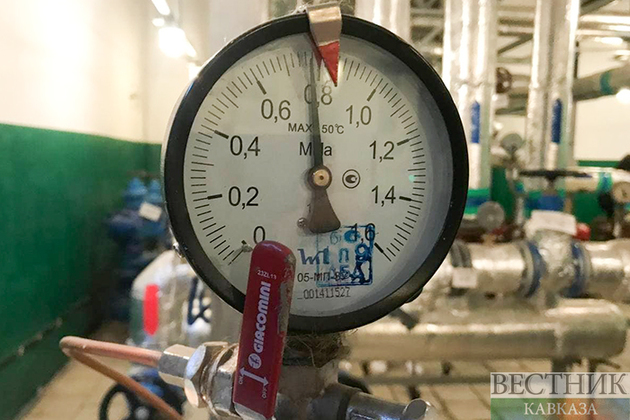The German government said Friday it remains opposed to an EU-wide mechanism to enforce a price cap on nautral gas imports — just one day after unveiling a giant €200 billion package to shield domestic households and companies from rising gas prices, Politico writes.
Speaking at a government press conference in Berlin, a spokesperson for the economy ministry said it was important to distinguish between a gas price "brake" like Germany announced on Thursday — under which the government sets a gas price and pays the difference to the actual market import price — and the proposal to introduce an EU-wide gas price cap, where the bloc would jointly agree to only pay a fixed price to international gas suppliers.
Spokesperson Susanne Ungrad voiced concern that such a price cap on global imports — an idea backed by 15 countries in a recent letter to Energy Commissioner Kadri Simson — creates the risk that gas suppliers would simply direct shipments to other countries and cause scarcity in Europe.
"We do not support an absolute maximum limit — in other words, a rigid price cap — because there is a risk that we will then no longer be able to buy enough gas on the world market at this price," Ungrad said. "And that would then be counterproductive if there wasn't enough gas available, because then our security of supply would no longer be guaranteed."
For now, the European Commission has not yet proposed any legislation that would lower wholesale gas prices, either via a maximum price or a subsidy scheme. Various countries such as Italy, Poland and Greece have floated their own ideas for a price cap, which range from a rigid maximum price to a so-called dynamic cap, which would fix EU gas prices to one symbolic euro higher than the rival Asian bidding price, the Japan-Korea Marker.
Berlin's cautious view was underlined by Germany's Climate and Economy Minister Robert Habeck, in Brussels for an emergency summit of EU energy ministers. While saying he would be open to the idea of capping the price of Russian gas imports, something the Commission has suggested but which hasn't garnered widespread support among member countries, he was much more circumspect about a price cap on imports of liquefied natural gas. "Here we must not allow too little gas to reach Europe," Habeck said. German Chancellor Olaf Scholz earlier this month voiced opposition to a price cap on gas imports.
Money worries
Berlin's subsidy scheme is likely to cause controversy at the European level because countries with a solid fiscal situation can afford to draw fresh debt to limit gas prices for households or companies, while others might not have such financial leeway. “We can’t divide ourselves according to our fiscal room for maneuver, we need solidarity,” Italy's outgoing Prime Minister Mario Draghi said late Thursday.
Privately, diplomats worry that measures such as cutting excise duties or the price cap announced by Germany can have spillover effects on neighboring countries. “Once governments are under pressure they do what they can do, but there are limits and it's clear that not all member states will be able to follow this approach,” said an EU diplomat.
The clash evokes the response to the coronavirus pandemic, when Germany was able to dole out huge sums to support business suffering from lockdowns. That led to accusations that Berlin was distorting competition across Europe because not all EU countries could afford such generosity. Ultimately, the EU reacted by setting up its historic €750 billion coronavirus recovery fund, but the German government has repeatedly insisted that this was a "one-off" solution that won't be repeated.
“The philosophy is very much different from COVID. It is effectively every country for itself, that tone is being set in Germany,” said Mujtaba Rahman, director with Eurasia Group, a political risk consultancy.
Germany's approach to throwing vast amounts of money at the energy price crisis is also creating a domestic backlash. The German Federal Audit Court late Thursday complained that the government was bypassing debt rules and relying on a scheme that lacks transparency and parliamentary oversight.
While Berlin is not keen on a price cap, it is more open to responding to high prices by organizing joint purchases of gas. "We should use Europe’s market power wisely, act in a coordinated manner and bring prices down," Habeck said. But there is worry in Berlin that such a measure could violate EU conception rules, which means the Commission needs to step in and clearly define a solution — something that could take months, a German official said.






